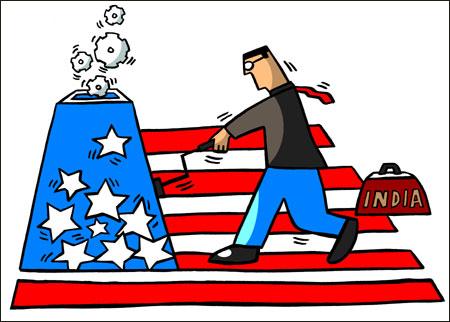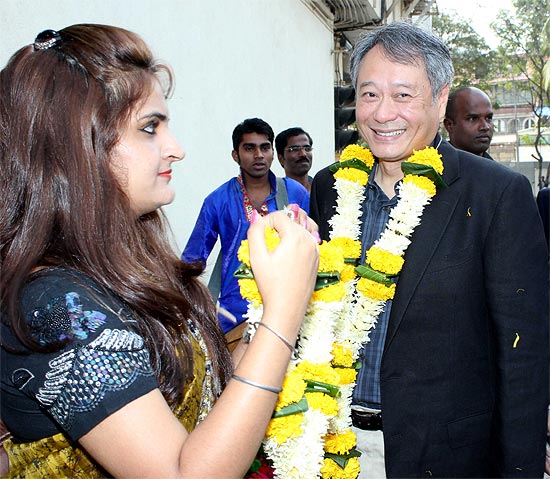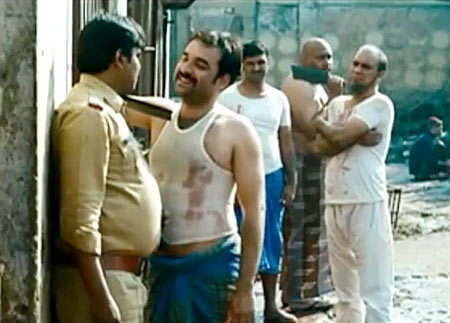
Indian entrepreneurs must try and put an end to their obsession with the imported and all things western and instead focus on exploring what's unique to the country.
A man with a severe tooth ache goes to the dentist, who upon examining the tooth, assures the man that the problem wasn't anything serious and that a simple procedure performed under a local anesthesia would help repair the damage.
Upon hearing this, the man gets very upset and tells the dentist, "What? Local anesthesia? You think I cannot afford a foreign one?! I demand an imported one!"
I heard this tale first some decades ago and it served to highlight, in a tongue in cheek manner, the obsession of Indians with all things foreign while also showcasing the lack of awareness of what a local anesthesia was.

Please click NEXT to continue reading...

This obsession with the imported and the foreign should have lessened, one would have imagined, after over 20 years of economic liberalisation.
Yet, writing about Ang Lee winning the Best Director-Oscar for Life of Pi, Chidanand Rajghatta of Times of India had this to say -- "It was a big moment for Lee, but a bigger moment for his Indian fans when he ended his acceptance speech with a "Namaste"
Really? Indians felt pride, according to the writer because Ang Lee said "Namaste"?!
There's a big lesson for Indian entrepreneurs.
A lesson involving self-esteem, capability, the confidence and courage of one's own convictions.
An entrepreneur cannot solve problems by just seeking inspiration, affirmation and trivial acknowledgement of from elsewhere without the passionate, driving self-belief, a deep understanding of the problems to be solved and a gathering of insight.
Therefore, blindly copying models from elsewhere, by regularly reading about start-ups and start-up ecosystem in advanced economies and thereafter slavishly attempting to adopt those offerings and even behaviour from elsewhere without adding any real original material of one's own is a recipe for tragic disaster.
Imitation is the best form of flattery, and indeed homage, to the original.
The imitator is at best tolerated but never respected for there's no original contribution on offer that's worth recognising, just a momentary quick-fix solution.
Many companies and entrepreneurs -- even countries (think Taiwan and China) -- start off imitating but then, the successful ones, move rapidly to invest in creating the infrastructure to develop the insights and then execute relentlessly to offer unique solutions to their problems.

Shekhar Gupta, Editor in Chief at The Indian Express, talking to Steven Spielberg is quoted thus, "Walking down Champs-Elysees, I was very happy to see a hoarding for an Indian film which described the director as India's Tarantino."
So, what about an American director being described as America's Anurag Kashyap?
When will that happen? Should that happen and is that a desirable goal?
What will it take to make that happen?
So, rather than have debates and discussions around these questions, we bask in the pitiable glory of being second hand?
Shekhar Gupta goes on to say, "I would like to express a wish to you... So why don't you come to India and do an epic on anybody -- Buddha, Ashoka, Chandragupta, Akbar, Gandhi, Nehru -- we have many themes and stories for you. But it needs a Spielberg to come and do justice to it."
And how does Spielberg respond?
"I think it needs an Indian director to tell those stories and maybe I could help in the background"
How big a tragedy is it when we are so eager to outsource the telling of our own stories and history?
What does it say about us?
What does it reveal about our lack of self-belief, the infrastructure, the competence, the capacity?
Since we learn and react only to what outsiders have to say, perhaps the following will be instructive.

Eric Schmidt, Executive Chairman of Google, on a recent visit to India said "The most striking Indian internet ........... will come from Indians solving local problems.
We know that India's internet infrastructure allows Indian engineers to solve the problems of small businesses in other countries.
If India plays its cards right, we'll soon see Indian engineers and Indian small businesses tackling Indian problems first, then exporting the solutions that work best."
For India to play its cards right, it must first recognise that it has the cards and can learn to play its own game!
Drew Olanoff writing in Techcrunch on recent visit had this to say "If a country like India can stop worrying about being like Silicon Valley and find its true self, there could be a new RedBus every other week. It's moonshot thinking, of course, but that's what it takes".
Finding its true self -- that's a challenge for Indian entrepreneurs and for those involved in the growth of the Indian entrepreneurial ecosystem.
Shall we all rise to the occasion now that there's endorsement from outside?